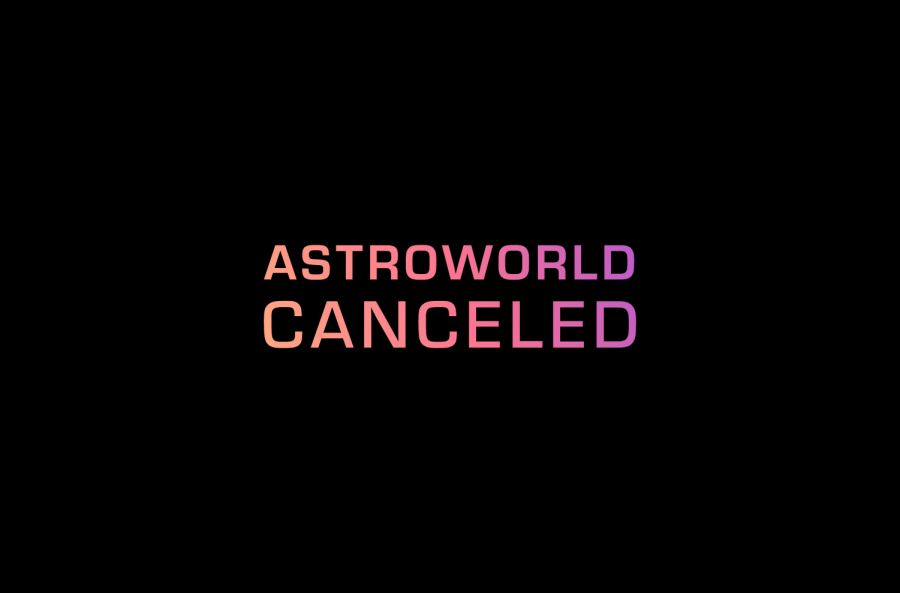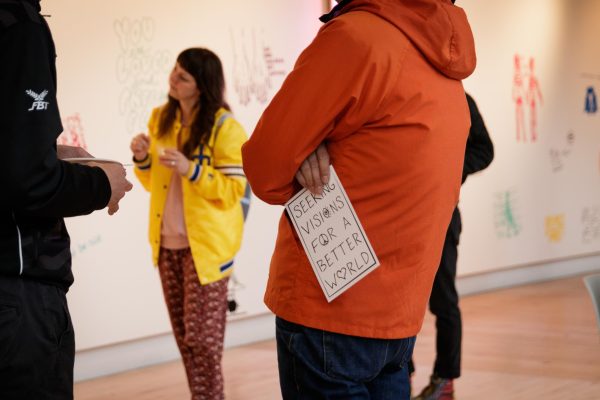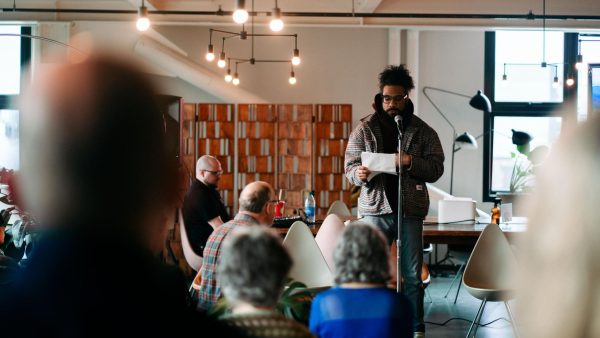What The Astroworld Debacle Means For the Future of Festivals
A crowd surge that injured scores of fans and killed at least ten attendees occurred on the first night of Travis Scott’s Astroworld Festival in Houston, Texas. Throughout the Concert, fans attempted to escape, but the mass of people and lack of assistance made that nearly impossible.
The festival’s varied lineup, which included contemporary rappers (Don Toliver, Lil Baby), underground artists (Teezo Touchdown, SoFaygo), indie rockers (Tame Impala, Yves Tumor) and classic acts (Earth, Wind & Fire, Master P) attracted a variety of fans who quickly bought tickets; the event sold out in under an hour.
Ella Rustin, a second-year communications and media major and KXSU’s promotions director, commented on her anticipation and eventual shock.
“I was very much trying to get tickets. It’s so weird to think that something that seems so casual to people can end up going that south,” Rustin said.
At around 9 p.m., the crowd surged as Scott began his headlining performance. Several attendees witnessed injuries during the beginning of the set, and by 9:38 p.m., officials declared the concert a mass casualty event. Though Scott paused the set a few times to check on the crowd’s safety, he did not end the show until around 10:15 p.m.
Attendees and spectators placed blame on Scott and his organizers at Live Nation. Since the disaster, dozens of lawsuits have been leveled. Ben Crump, the attorney who represented the families of Breonna Taylor, George Floyd and Trayvon Martin, is serving over 200 concertgoers in various cases against Live Nation and Scott himself. Officials, crowd members and festival staff have cited subpar hiring practices, a lack of transparency regarding safety strategy, an unmanageable influx of trespassers and Scott’s inaction as contributing factors to the situation.
Lachlan Soughan, a first-year global business student, assumes negligence on behalf of the organizer.
“I don’t know the actual details of how many people they could fit in a certain area, but clearly there were some logistical issues. As to the behavior of the people, it’s a mob kind of mentality,” Soughan said.
Rustin reiterated Soughan’s sentiment regarding the psychology of the large crowd.
“It’s that mob mentality of ‘I’m having fun at a concert and I’m gonna jump around and push to the front,’” Rustin said.
Reactions toward Scott have been mostly negative, with many reflecting upon Scott’s conduct at previous concerts in the wake of Astroworld. In 2015, the rapper halted his performance, encouraging the audience to assault a man who took his shoe during a crowd surf. In 2017, Scott pleaded guilty to charges of disorderly conduct after encouraging fans to storm his stage. As one of today’s most popular artists with such a highly anticipated album, these events have given Scott a level of notoriety with the mainstream public.
In light of previous incidents and the Astroworld crush, Kevin Bennet, a third-year economics and finance major, thinks less of Scott.
“I’m not a big Travis Scott fan or anything, but he’s so mainstream and huge. I think he has a big influence on the younger generation. It made me think he’s a lot worse of a person than I’d originally thought,” Bennet said.
Rustin, a fan of Scott’s music, felt conflicted regarding Scott’s reputation.
“I love that man so much, and after that happened, I feel like I lost a lot of respect for him. He needs to learn that people’s safety is actually important. It’s not always about telling your fans to rage like crazy. I feel like a lot of people hate him now, which is unfortunate,” Rustin said.
In spite of the numerous probable causes provided by investigators and witnesses, the tragedy quickly gave rise to misleading rumors. Conspiracy theorists seized upon the tragedy to put forward their ideas about the event. For the most part, TikTok has removed these videos to curb further disinformation.
“I hate it. I think it is so dumb. There’s this thing called satanic panic, and when catastrophes happen, people don’t know how to cope with it. Especially with Hollywood and celebrities, they’ll use satanic panic to make peace of what happened and say, ‘oh, this was a ritual, this was satanic,’” Rustin said.
Bennet shared Rustin’s frustration about deflecting the gravity of the tragedies by way of satanic panic.
“I think the same people who are doing that are the same people saying that stuff about every situation … They take every situation they can and try to fit it to their agenda. It’s kind of a scapegoat that takes away from the real conversation,” Bennet said. “It’s pointless fluff … Pretending that horrible situations only happen because of a demonic force takes away from the reality of the overcrowding and senseless encouragement of the constant raging. That’s what did the damage.”
The continuing presence of COVID-19 and the disastrous turn at Astroworld caused students to share concerns about returning to the festival atmosphere. Soughan, who wanted to attend the Rolling Loud music festival in December, now has reservations.
“First off with COVID-19, those concerts are super-spreaders, especially in places like Los Angeles and Houston, where the cases are much higher than what we have here in Seattle. And from a general safety standpoint, being in that crowd, that surge, it doesn’t matter how big you are,” Soughan said. “You can get caught in that and suffocate. Right now, it’s kind of up in the air. I don’t know whether I want to go or not. Is this a freak accident? Is this something that could happen again? I don’t know.”
Rustin reflected on the nature of crowds after attending the recent Suicideboys concert.
“The first big concert I went to since the pandemic was last week and it was intense. There were times when I thought ‘these people do not remember what it’s like to be at a concert,” Rustin said.
Numerous factors surround the tragic events that occured. Mismanagement by concert organizers, security and Scott, insatiable fan expectations and the lack of large-scale events during the pandemic are all factors that could have caused the audience to surge. The hype behind Scott’s festival and album are forcing the public to pay attention to his promotion of unruly behavior within his audiences. At the very least, the Astroworld crush will likely force responsibility upon artists and promoters in their organizational efforts and treatment toward fans.








![Jordan Ward [REVIEW]](https://seattlespectator.com/wp-content/uploads/2024/04/ward_1-600x400.jpg)

![COWBOY CARTER [REVIEW]](https://seattlespectator.com/wp-content/uploads/2024/04/Screenshot-2024-04-10-at-7.37.52 PM-600x349.png)